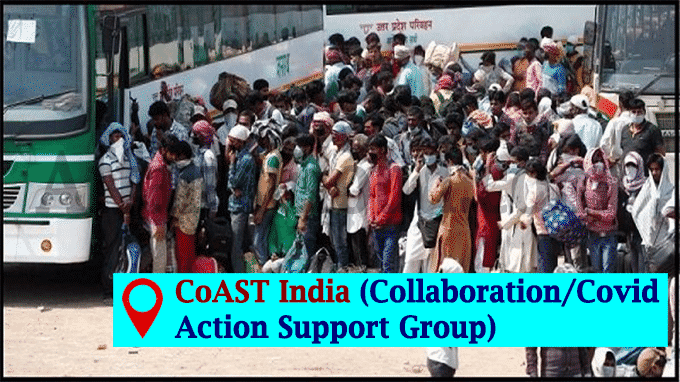
Key Points
i.The dashboard provides a repository of migrants data & requirements linked to the relevant service providers. It also visualises facilities like schools & hospitals, road networks, relief camps, quarantine centers & healthcare workers.
ii.It draws information from 55 organisations mostly in villages and aims to make such data available so that governments and small local civil society groups can help.
iii.The data available on the platform is collated from various gov. departments, NGOs & various helpline numbers & is crowdsourced in the website itself and constantly is being updated.
Features of the platform
i.The platform includes the map of India which reflects the movement of migrants in real time on their long journeys, often on foot, along with facilities and relief organisations on their routes.
ii.The map matches time and spatial data, on administrative facilities in the area, transportation and healthcare facilities of an area and summaries, on the fly, in real-time of people passing by.
Four elements
They are sought to be brought together by this portal on Location of migrants and vulnerable people, their specific needs; location of key infrastructure on the way which can double up as a rest-centre; or quarantine space and location of relief and rehabilitation providing NGOs(Non-Governmental Organization ) and civil society organisations.
About India Observatory:
- It is the country’s 1st socio, economic, ecological open source integrated Geospatial data platform, set up in December 2019, in the GeoSmart India conference.
- India Observatory has the ‘India Data Platform’ at its core, which is built on open source and brings together data on over 1600 parameters ranging from village to national level in the form of maps, graphs, tables and infographics.
- It is freely available for civil society organizations, students, government departments and citizens.
Other developments- Other set of unique platforms and tools developed by it are: Indian Biodiversity Information System (IBIS), Composite Landscape Assessment and Restoration Tool (CLART), Integrated Forest Management Tool (IFMT), GIS Enabled Entitlement Tracking Tool (GEET), etc. addressing specific issues.
Headquarters– Gujarat, India